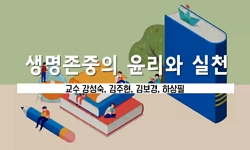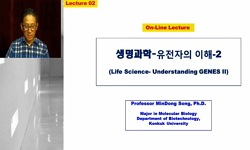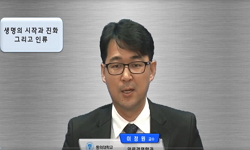According to the existing interpretation that divides the Yu Chi-hwan’s literary world into three periods, the 1950s were the mid-term period in which interest in real life and society is marked. However, the biggest feature seen in Yu Chi-hwan’s ...
http://chineseinput.net/에서 pinyin(병음)방식으로 중국어를 변환할 수 있습니다.
변환된 중국어를 복사하여 사용하시면 됩니다.
- 中文 을 입력하시려면 zhongwen을 입력하시고 space를누르시면됩니다.
- 北京 을 입력하시려면 beijing을 입력하시고 space를 누르시면 됩니다.

1950년대 유치환 문학에서 ‘신’과 ‘휴머니즘’의 관계- 시, 산문, 아포리즘(短章)을 중심으로 - = The Relationship between ‘God’ and ‘Humanism’ of Yu Chi-hwan’s Literature in the 1950s- with a focus on his poem, prose and aphorism -
한글로보기부가정보
다국어 초록 (Multilingual Abstract)
With the emphasis on “God”, it has changed markedly in Yu Chi-hwan’s literature. The reason for human existence is beyond the scope of modern humanism, and within the scope of “God = Nature” the hierarchy between “humane” and “nature” is denied. At this time, Yu Chi-hwan confronted the mindset of separating humans from nature and giving humans an existential advantage, and continued writing based on existential equality in the perception of “God = Nature”. Therefore, despite writing poems about the same natural object, the early poems and poems of the 1950s have very different aspects, and they show a distinctly different attitude in their perception of finiteity or their perception of death. For this reason, the 1950s literature of Yu Chi-hwan’s should be reinterpreted in a context different from modern humanism or existentialism, and should be evaluated in a broad sense in relation to Oriental thought.
According to the existing interpretation that divides the Yu Chi-hwan’s literary world into three periods, the 1950s were the mid-term period in which interest in real life and society is marked. However, the biggest feature seen in Yu Chi-hwan’s literature from shortly after the Korean War to the end of the 50s is the emergence of an idea about “God.” Yu Chi-hwan’s literature began in the 1930s by asking questions about the existential meaning of human life. And the consciousness of the problem of “life” was refracted with a sense of awareness and nihilism about finiteness by hitting the wall of “infinite”. But since the 1950s, his literature has changed the question of human existence, and the ‘God’ concept is the trigger for that change. Unlike “God” in religious meaning, Yu Chi-hwan’s “God” is not transcendent. He called the will, the mimd and the ability to make nature exist “God”.
With the emphasis on “God”, it has changed markedly in Yu Chi-hwan’s literature. The reason for human existence is beyond the scope of modern humanism, and within the scope of “God = Nature” the hierarchy between “humane” and “nature” is denied. At this time, Yu Chi-hwan confronted the mindset of separating humans from nature and giving humans an existential advantage, and continued writing based on existential equality in the perception of “God = Nature”. Therefore, despite writing poems about the same natural object, the early poems and poems of the 1950s have very different aspects, and they show a distinctly different attitude in their perception of finiteity or their perception of death. For this reason, the 1950s literature of Yu Chi-hwan’s should be reinterpreted in a context different from modern humanism or existentialism, and should be evaluated in a broad sense in relation to Oriental thought.
참고문헌 (Reference)
1 박호성, "휴머니즘론" 나남 2007
2 서정주, "한국의 현대시" 일지사 1973
3 김현자, "한국시 전통의 계승과 확장" 한국시학회 (22) : 31-52, 2008
4 허만하, "청마풍경" 솔 2001
5 임수만, "청마 유치환의 ‘고독’과 ‘生命’에의 熱愛" 한국시학회 (22) : 127-150, 2008
6 손남훈, "청마 유치환 시의 초월 의식 연구" 동남어문학회 1 (1): 103-133, 2017
7 오세영, "존재의 초극: 유치환의 시 세계" 한국현대문학회 7 : 1999
8 이새봄, "유치환의 아포리즘 연구" 한국시학회 (24) : 225-249, 2009
9 방인태, "유치환의 시론" 한국현대문학회 2 : 1993
10 김윤정, "유치환의 문학에 나타난 ‘인간주의적 형이상학(形而上學)’ 고찰" 한민족어문학회 (69) : 477-509, 2015
1 박호성, "휴머니즘론" 나남 2007
2 서정주, "한국의 현대시" 일지사 1973
3 김현자, "한국시 전통의 계승과 확장" 한국시학회 (22) : 31-52, 2008
4 허만하, "청마풍경" 솔 2001
5 임수만, "청마 유치환의 ‘고독’과 ‘生命’에의 熱愛" 한국시학회 (22) : 127-150, 2008
6 손남훈, "청마 유치환 시의 초월 의식 연구" 동남어문학회 1 (1): 103-133, 2017
7 오세영, "존재의 초극: 유치환의 시 세계" 한국현대문학회 7 : 1999
8 이새봄, "유치환의 아포리즘 연구" 한국시학회 (24) : 225-249, 2009
9 방인태, "유치환의 시론" 한국현대문학회 2 : 1993
10 김윤정, "유치환의 문학에 나타난 ‘인간주의적 형이상학(形而上學)’ 고찰" 한민족어문학회 (69) : 477-509, 2015
11 방인태, "유치환의 말기시에 나타난 명상과 순응사상" 강남대학교부설한국학연구소 1 : 1993
12 박태일, "유치환과 이원수의 부왜문학" 소명출판 2015
13 남송우, "유치환 전집 Ⅰ~Ⅵ" 국학자료원 2008
14 오양호, "유치환 시의 원적과 그 실존주의적 본질 탐색" (겨울) : 2013
15 이연승, "유치환 시의 숭고미 연구 -초기시를 중심으로" 어문연구학회 76 : 235-263, 2013
16 임수만, "유치환 시의 낭만적 특성 연구 : 낭만적 아이러니를 중심으로" 서울대학교 대학원 2004
17 송기한, "유치환 시에서의 무한(infinity)의 의미 연구" 어문연구학회 60 : 261-282, 2009
18 김윤정, "유치환 시에서의 ‘절대’의 외연과 내포에 관한 고찰" 한국시학회 (26) : 209-236, 2009
19 이재훈, "유치환 시에 나타난 허무의식(虛無意識) 연구" 한국현대문예비평학회 (22) : 139-162, 2007
20 정주연, "유치환 시 연구 : 아포리즘과의 관계를 중심으로" 서강대학교 대학원 1999
21 오세영, "유치환" 건국대학교출판부 2000
22 오세영, "실존 그리고 허무의 의지-유치환론" 월인 235-, 2003
23 허만하, "부드러운 시론" 열음사 1992
24 디디에 오타비아니, "미셸 푸코의 휴머니즘" 열린책들 2010
25 미셸 푸코, "말과 사물" 민음사 1980
동일학술지(권/호) 다른 논문
-
경험 중심 글쓰기 교육 연구- 호서대학교 글쓰기와 커뮤니케이션 수업 사례를 중심으로 -
- 한국문학이론과비평학회
- 송선령
- 2019
- KCI등재
-
- 한국문학이론과비평학회
- 김정훈
- 2019
- KCI등재
-
- 한국문학이론과비평학회
- 김순재
- 2019
- KCI등재
-
오장환의 시에 나타나는 신체 공간과 ‘변이-주체’ 양상
- 한국문학이론과비평학회
- 이지영
- 2019
- KCI등재
분석정보
인용정보 인용지수 설명보기
학술지 이력
| 연월일 | 이력구분 | 이력상세 | 등재구분 |
|---|---|---|---|
| 2022 | 평가예정 | 재인증평가 신청대상 (재인증) | |
| 2019-01-01 | 평가 | 등재학술지 유지 (계속평가) |  |
| 2016-01-01 | 평가 | 등재학술지 선정 (계속평가) |  |
| 2015-12-01 | 평가 | 등재후보로 하락 (기타) |  |
| 2011-01-01 | 평가 | 등재학술지 유지 (등재유지) |  |
| 2009-01-01 | 평가 | 등재학술지 유지 (등재유지) |  |
| 2007-01-01 | 평가 | 등재학술지 유지 (등재유지) |  |
| 2004-01-01 | 평가 | 등재학술지 선정 (등재후보2차) |  |
| 2003-01-01 | 평가 | 등재후보 1차 PASS (등재후보1차) |  |
| 2001-07-01 | 평가 | 등재후보학술지 선정 (신규평가) |  |
학술지 인용정보
| 기준연도 | WOS-KCI 통합IF(2년) | KCIF(2년) | KCIF(3년) |
|---|---|---|---|
| 2016 | 0.68 | 0.68 | 0.69 |
| KCIF(4년) | KCIF(5년) | 중심성지수(3년) | 즉시성지수 |
| 0.69 | 0.68 | 1.285 | 0.21 |





 KCI
KCI KISS
KISS







